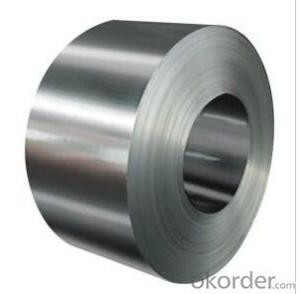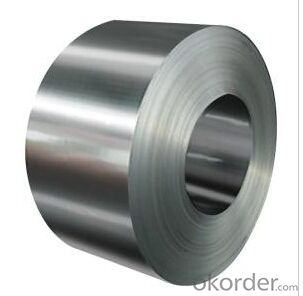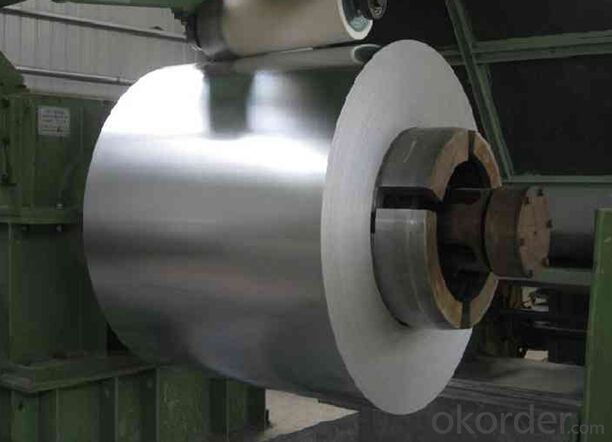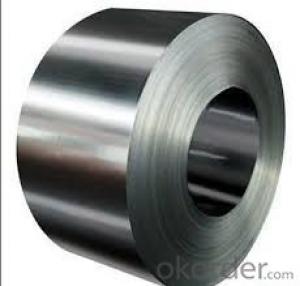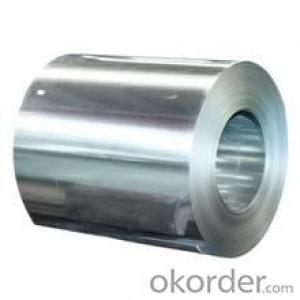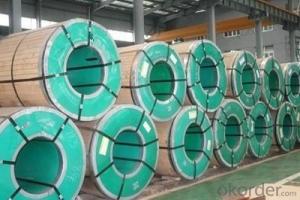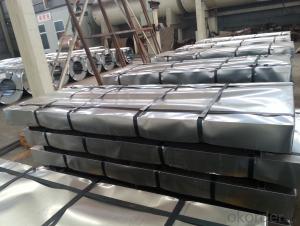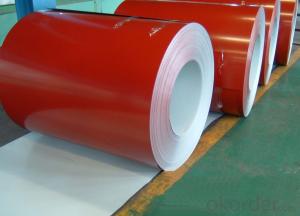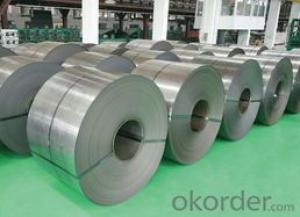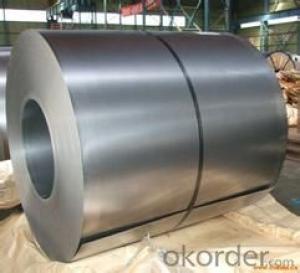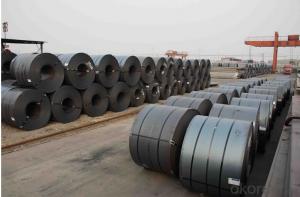Stainless Cold Steel Sheet& Coil (304/316)
- Loading Port:
- Tianjin
- Payment Terms:
- TT OR LC
- Min Order Qty:
- 25 m.t.
- Supply Capability:
- 10000 m.t./month
OKorder Service Pledge
OKorder Financial Service
You Might Also Like
Description:
Model NO.:304/316
Type:Steel Plate
Technique:Cold Rolled
Certification:ISO
Standard:ASTM, AISI, GB, JIS, DIN, BS
Stock:Stock
Surface Treatment:Coated
Special Use:Anti-Skidding/Mirror
Application:Ship Plate, Boiler Plate, Container Plate, Flange Plate
Used:Widely Used in Food Service Industry, Chemical in
Export Markets:Global
Additional Info.
Trademark:JTST
Packing:Standard Export Packing or as Your Request
Standard:304/316/201/202
Origin:China
Production Capacity:10000tons/Month
Product Description
1.Commodity: Stainless steel coil
2.Stock or not: Stock
3.Grade:
200Series: 201, 202
300Series: 301, 302, 303, 304, 304L, 316, 316L, 321
400Series: 410, 410L, 416, 420, 430, 430F
600Series: 630(17-4pH), 631
4.Description
Thicknesses: 0.4-50mm
Widths: 1,000/1,219/1,500/1,800mm
Length: Min. 1m
5. Surface finish: 2B, BA, 8K, 6K, Mirror Finished, No1, No2, No4, Hair Line with PVC
6.Manufacture technology: Cold drawn/cold rolled/hot rolled
7. Export Markets: India, Pakistan, South Korea, Brazil, Australia, South Africa, Spain, Sri Lanka, Taiwan, Hong Kong, etc.
8. Application:
1), Automotive: Automotive trim and molding/Difficult-to-form exhaust-system components, tubular manifolds, mufflers/Exhaust manifold and other exhaust-system components, catalytic converter shells, clamps
2), Construction: Gutters and downspouts, roofing, siding
3), Kitchenware: Cooking utensils, dishwashers, ovens, range hoods, refrigerators, skewers
4), chemical processing: Oil refinery equipment, oil burner and heater parts
5), Appliances: Hot water tanks, residential furnaces
6), Power generation: Heat Exchanger tubing
7), Farming: Dry fertilizer spreaders/Farm animal pens
9. Packaging Detail: Wrapped by plastic woven bags, supported by wooden frame and reinforced by iron straps.
10. Delivery Detail: Within 7days
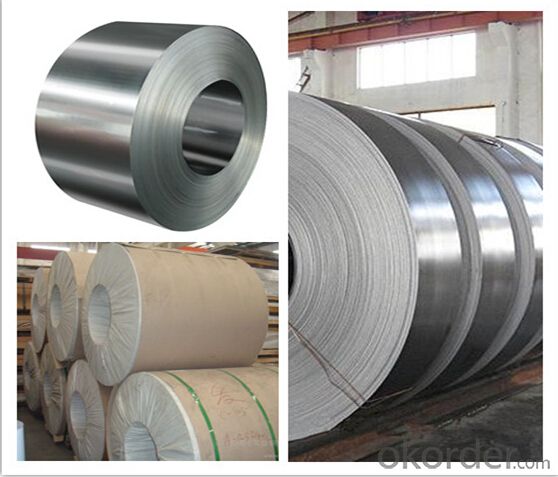
| Commodity Description: Stainless Steel Sheet | ||||||||
| 1. Thickness: | 0.2~6mm | |||||||
| 2. Width: | 1000~2500mm | |||||||
| 3. Length: | 6000mm~8000mm or as your request | |||||||
| 4. Standard: | ASTM, AISI, JIS, GB, DIN, etc. | |||||||
| 5. Chemical Composition(%) | C | Mn | P | S | Si | Ni | Cr | N |
| ≤ 0.08 | ≤ 2.00 | ≤ 0.045 | ≤ 0.030 | ≤ 0.75 | 8.00~10.50 | 18.00~20.00 | ≤ 0.10 | |
| 6. Surface: | 2B, BA, 8K, No. 1, No. 4, HL, etc. | |||||||
| 7. Technique: | Cold/Hot Rolled | |||||||
| 8. Certification: | ISO | |||||||
| 9. Package: | Standard export packing or as your request | |||||||
| 10. Application: | Widely used in food service industry, chemical industry, nuclear energy field, etc. | |||||||
| 11. Advantages: | 1. Corrosion resistance. 2. High temprature resistance. 3. High production ability. 4. Reasonable price. 5. Excellent quality. 6. Various size. | |||||||
| 12. Main Market: | North America, South America, Europe, Southeast Asia, Africa, Oceania, Middle East, Eastern Asia, Central America | |||||||
| 13. MOQ; | 2 Metric Tons | |||||||
| 14. Delivery Time: | Within 15 days | |||||||
| 15. Payment terms: | T/T, L/C, Western union | |||||||
FAQ
1.What's your MOQ?
25MT, it is for one container.
2.Do you have QC teams?
Yeah, sure, our QC team is very important, they will keep the quality control for our products.
3. What's your normal delivery time?
Our delivery time about 10-20days for standard sizes, if you have other requirements like hardness and width ,it is about 20-40days. But don't worry ,we also try our best for the delivery time ,because time longer and our cost is higher.
4.Are the products tested before shipping?
Yes, all of our PPGI and GI was qualified before shipping. We test every batch every day.
- Q: Are steel coils affected by magnetic fields?
- Magnetic fields can indeed have an impact on steel coils. Steel, being a ferromagnetic material, has the ability to be magnetized or attracted to magnets. When a steel coil is subjected to a magnetic field, it can develop its own magnetic field, resulting in magnetization. The consequences of this magnetization depend on the strength and duration of the magnetic field. In situations where the magnetic field is strong and the coil remains exposed to it for a considerable period, the steel coil may retain some magnetism even after the magnetic field is no longer present. This can create difficulties in certain applications that call for a non-magnetic material, as the magnetized steel coil may attract or disrupt nearby objects. Conversely, if the magnetic field experiences frequent changes or fluctuations, it can induce electrical currents within the steel coil through a process called electromagnetic induction. These currents, known as eddy currents, can generate heat within the coil. This heat can lead to energy losses and potentially damage the coil. Therefore, it is vital to carefully consider the impact of magnetic fields on steel coils in various applications. Protective measures, such as shielding or demagnetization processes, may be necessary to minimize the consequences of magnetic fields on steel coils, when deemed necessary.
- Q: How are steel coils used in the production of electrical connectors?
- Steel coils are used in the production of electrical connectors as they are often used as a raw material for manufacturing the connector pins. The steel coils are typically shaped and cut to specific dimensions to create the pins, which are then inserted into the connectors to establish electrical connections.
- Q: Hi,Well, I live near almost across the street from a forest, and my neighborhood is full of raccoons!!! Recently, I just purchased a bunny and have kept it at my cousin's house for the time being. He has a steel cage, and is about 6 months old. I am considering bringing him home and leaving him in the back yard with his steel cage. I am just afraid that raccoons can bite through the steel and get to him. So the question is... Is is possible for raccoons to bite through steel? Btw,Please don't answer hate comments about me being a bad rabbit owner. I simply want to know if raccoons can bite through steel. If it doesn't work out, the rabbit will stay at my cousins house until further notice. But please, I did not waste 5 points for unneeded answers. Thanksss!
- Well the raccoons can't bite through steel unless it is very thin steel, like aluminum foil thickness. But they have long arms and can reach into the cage so that would be my worry. They are also very clever so I don't know if it is safe for the bunny. That would depend upon the size of the cage and how hungry the raccoons are. The raccoons might be tempted to try to steal the bunny's food so that is a concern. Check with a pet shop owner or forester or someone like that who has knowledge about raccoons in the area.
- Q: What are the dimensions of steel coils used in the household appliance industry?
- The dimensions of steel coils used in the household appliance industry can vary depending on the specific application and requirements. However, standard dimensions for steel coils commonly used in this industry range from 0.4mm to 3mm in thickness and 600mm to 1500mm in width. The length of the coils can also vary, typically ranging from a few hundred meters to several kilometers. These dimensions ensure that the steel coils are suitable for various household appliance manufacturing processes, such as forming, stamping, and welding. It is important to note that these dimensions are not fixed and can be customized based on the specific needs of the appliance manufacturer.
- Q: What are the common methods of joining steel coils?
- There are several common methods used for joining steel coils, depending on the specific application and desired outcome. 1. Butt welding: This is a commonly used method where the two ends of the steel coils are aligned and welded together. Butt welding can be done using various techniques such as gas welding, electric resistance welding, or laser welding. This results in a strong and continuous joint without any additional material. 2. Overlapping and stitching: In this method, one end of the steel coil is overlapped onto the other end, and then stitched together using mechanical fasteners like staples, nails, or screws. This technique is suitable for temporary or low-stress applications where disassembly may be required. 3. Mechanical coupling: Steel coils can also be joined using mechanical couplings. These couplings are typically designed to fit over the ends of the coils and securely hold them together. Mechanical couplings are commonly used in pipelines, where the joint needs to be leak-proof and withstand high pressure. 4. Adhesive bonding: Another method of joining steel coils is through the use of adhesives. This involves applying a suitable adhesive or bonding agent to the ends of the coils and then pressing them together. Adhesive bonding allows for a clean and aesthetically pleasing joint, but its strength may vary depending on the adhesive used. 5. Overlapping and welding: Similar to overlapping and stitching, this method involves overlapping the ends of the steel coils and then welding them together. However, instead of using mechanical fasteners, welding is used to create a stronger and more permanent joint. This method is commonly used in structural applications where high strength and durability are required. It is important to note that the choice of joining method depends on factors such as the type of steel, the application requirements, and the desired strength of the joint. Proper consideration should be given to ensure the selected method is suitable for the specific project.
- Q: Can steel coils be coated with vibration-damping materials?
- Yes, steel coils can be coated with vibration-damping materials. The application of vibration-damping coatings can help reduce the transmission of vibrations and noise, enhancing the performance and durability of steel coils in various applications.
- Q: I need help my new stainless steel cookware is sticking ? My first meal was nasty!
- Food sticks to stainless steel. Gourmet cooks love it for that very reason. Without sticking, foods won't sear properly. For the rest of those cooks out there, nonstick is often an easier option. If you want to make a go of the stainless, here are some tricks of the trade.... a)always preheat the pan on low-medium b)never put cold food into a hot pan. It will stick worse.Leave cold food on counter for 15 minutes before it hits the pan. c)after preheating the pan, add oil, or an oil/butter combo d)for foods like eggs, potatos, grilled cheese, nonstick is your best friend. e) when you take food out of pan, immediately wipe the pan out with a kitchen towel. Keeps cleanup from being a nightmare. f) don't wash pans in sink while hot. They will warp. Stainless takes some getting used to. Hope this helps!
- Q: How do steel coils contribute to strength and durability in manufacturing?
- Steel coils contribute to strength and durability in manufacturing primarily due to their composition and structural properties. The tightly wound coils are made from high-quality steel, which offers excellent strength, rigidity, and resilience. This enables manufacturers to produce sturdy and long-lasting products, as the steel coils provide a solid foundation and structural integrity to various applications. Additionally, steel coils are often used in the construction of infrastructure, machinery, and automotive industries, where their durability and resistance to wear and tear play a vital role in ensuring the longevity and reliability of the final product.
- Q: How are steel coils coated to prevent rust and corrosion?
- Steel coils are coated to prevent rust and corrosion through a process called galvanization. This involves immersing the coils in a bath of molten zinc, which forms a protective layer on the steel surface. This zinc coating acts as a barrier, preventing oxygen and moisture from reaching the steel and causing rust. Additionally, the zinc coating provides sacrificial protection, meaning that even if the steel is exposed due to scratches or abrasions, the zinc will corrode before the steel, further enhancing its longevity and resistance to rust and corrosion.
- Q: How are steel coils used in the manufacturing of doors and windows?
- Steel coils are used in the manufacturing of doors and windows as they provide the necessary strength and durability required for these products. The coils are first processed and shaped into the desired form, which is then used as the base material for constructing the frames and panels of doors and windows. The steel coils also undergo various treatments, such as galvanization or coating, to enhance their resistance to corrosion and weathering. Overall, steel coils play a crucial role in ensuring the structural integrity and longevity of doors and windows.
Send your message to us
Stainless Cold Steel Sheet& Coil (304/316)
- Loading Port:
- Tianjin
- Payment Terms:
- TT OR LC
- Min Order Qty:
- 25 m.t.
- Supply Capability:
- 10000 m.t./month
OKorder Service Pledge
OKorder Financial Service
Similar products
Hot products
Hot Searches
Related keywords
